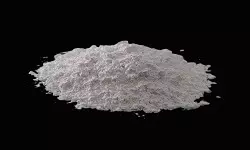IUPAC Name
Oxocalcium
Cas Number
1305-78-8
HS Code
2522.10.00
Formula
CaO
Appearance
White or Grayish-White Lumps or Powder
Common Names
Lime, Hi-Cal Quicklime, Calcium Oxide, Burnt Lime,
Packaging
25 Kg PP/PE Bags
Brief Overview
Calcium oxide, commonly referred to as quicklime or burnt lime, is a highly caustic and alkaline white crystalline solid when at room temperature. It holds significance across various industries alongside calcium hydroxide due to its cost-effective production. With a melting point at 2570°C (4658°F) and a boiling point at 2850°C (5162°F), calcium oxide readily dissolves in water, forming calcium hydroxide—an alkaline solution recognized as hydrated lime, with the chemical formula Ca(OH)2.
Manufacturing Process
Calcium oxide is generated through the thermal breakdown of calcium carbonate materials, like limestone, within a lime kiln. Initially, limestone undergoes mining, followed by crushing and washing to eliminate impurities. Through calcination or lime burning, the material is heated, causing the release of carbon dioxide and the formation of quicklime. This process is reversible, as quicklime can react with carbon dioxide, reverting to calcium carbonate. To prevent this reversal, carbon dioxide is efficiently extracted, ensuring the prevention of reconversion to calcium carbonate.
Water Treatment Industry
Calcium oxide, also known as quicklime, is used in water treatment for several purposes:
Adjusting pH: Quicklime is employed to neutralize acidic water by raising its pH level. It reacts with water to form calcium hydroxide, which is an alkaline substance. This process helps in reducing the acidity of water, making it less corrosive to pipes and equipment.
Softening Water: In water softening processes, calcium oxide is used to remove hardness ions, mainly calcium and magnesium ions, from water. It reacts with these ions, precipitating them out as insoluble compounds, thus reducing water hardness.
Coagulation and Flocculation: Quicklime is sometimes used as a coagulant or flocculant aid in water treatment. It helps in the aggregation of fine particles in water, making them easier to remove through filtration or settling processes.
Disinfection: In certain cases, the alkalinity of calcium hydroxide formed by the reaction of quicklime with water can contribute to disinfection by creating an environment that inhibits the growth of certain microorganisms.
These applications highlight the role of calcium oxide in adjusting pH, removing hardness, aiding in particle removal, and potentially contributing to disinfection processes in water treatment.
